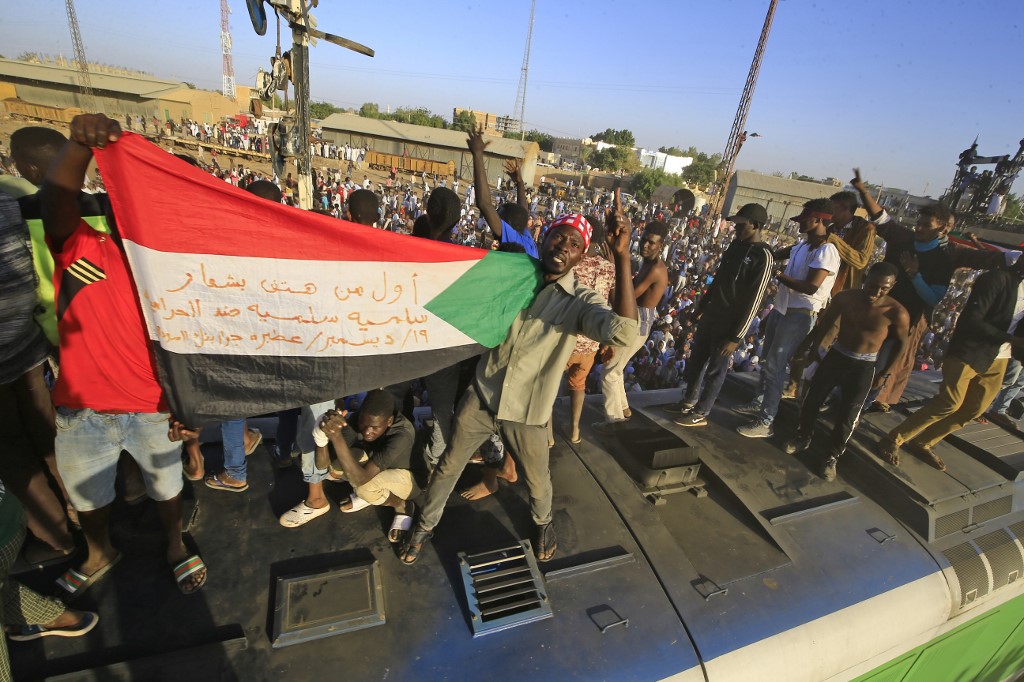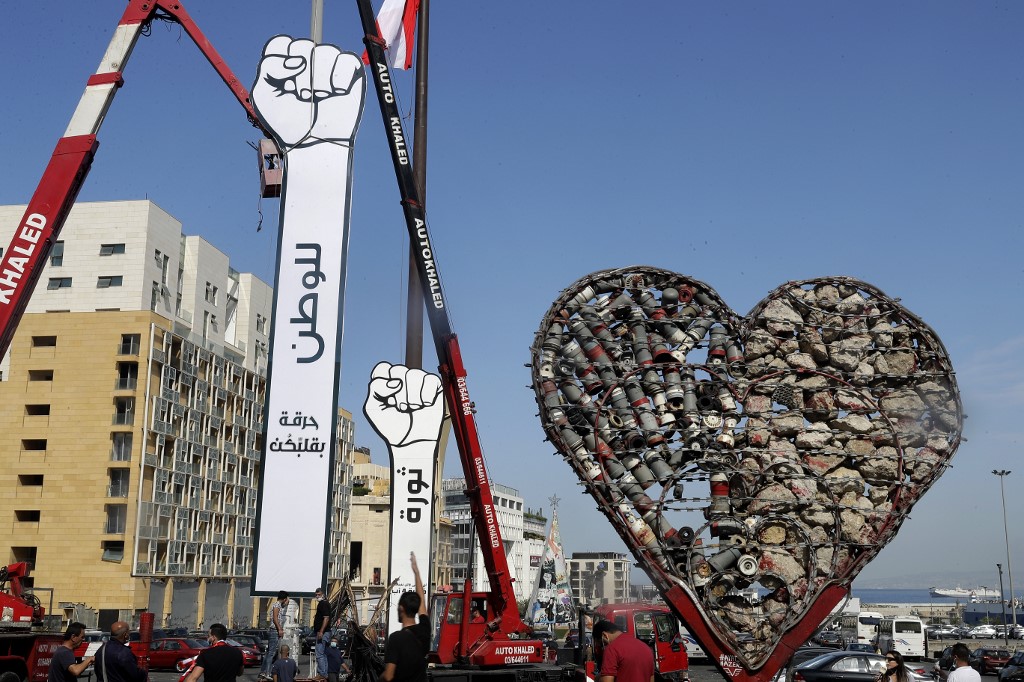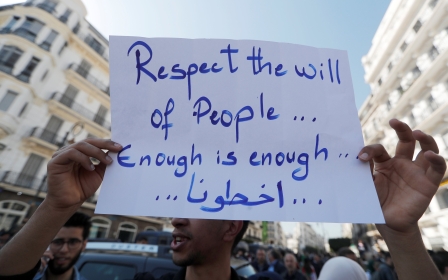
Warning to all tyrants: The Arab Spring lives on
A decade ago, a young Tunisian, Mohamed Bouazizi, set himself on fire to protest his economic and social conditions, sparking a series of Arab uprisings and revolutions. It later became known as the Arab Spring and led to the downfall of Arab dictators in Tunisia, Egypt, Libya and Yemen.
While some believe the Arab Spring failed to achieve its goals, particularly the establishment of free and democratic governments, there were many gains, including the ousting of the heads of four powerful authoritarian regimes: Zine El Abidine Ben Ali in Tunisia, Hosni Mubarak in Egypt, Muammar Gaddafi in Libya, and Ali Abdullah Saleh in Yemen.
The events of the past decade have revealed that the costs of authoritarianism and rejecting political change are very high - but those regimes that block reform are willing to pay a heavy price to remain in power.
Sponsors of the counter-revolution
This is certainly the case in Syria, which has been destroyed due to President Bashar al-Assad’s refusal to respond to demands for change. There no longer exists a sovereign state that he can govern, since Syria has come under the protection and tutelage of foreign powers, in particular Iran and Russia.
Stay informed with MEE's newsletters
Sign up to get the latest alerts, insights and analysis, starting with Turkey Unpacked
Similarly, the costs of General Abdel Fattah al-Sisi’s coup in Egypt in 2013 were very high. He has become known in the international arena as the worst dictator in the Middle East. He also has been forced to sacrifice some of Egypt’s regional weight in order to appease his allies, including the UAE, Saudi Arabia and Israel.
The sponsors of the counter-revolution, in particular the UAE and Saudi Arabia, spent large sums of money to stop the Arab Spring and to ensure that the protests would not reach them and unseat them from their thrones. They are now involved in civil wars in Yemen and Libya, financing mercenaries and warlords, such as General Khalifa Haftar. Their international reputations have reached a new low amid the killing of children and civilians in Yemen.
The ferocity of the counter-revolution itself might be the most important evidence of the success of the Arab Spring in achieving its goals, the chief of which was to raise the costs of tyranny. The UAE, Egypt and Saudi Arabia are trying to stop Arab revolutions and uprisings from recurring at any cost.
The economic aid provided to Sisi by Abu Dhabi and Riyadh has reportedly exceeded $60bn, not to mention the arms deals signed with France, Italy, Russia and the US. Political support has also been provided to Sisi to improve his image in Washington through lobby groups. The Emirati ambassador to Washington, Yousef Al Otaiba, played a pivotal role in marketing the 2013 Egyptian coup to the US administration.
Another wave of uprisings
The experience of the Arab Spring revealed that, despite the power of security and intelligence services - and their use of all means of torture, murder and violation of human rights for the sake of intimidation - the structure of Arab despotism is subject to breakage.
Who could have imagined that the Mubarak regime, which lasted for 30 years, would fall in a matter of 18 days? Who would have thought that Libya’s Gaddafi would be found hiding in a hole a few months after the revolution was launched against him, or that Yemen’s Saleh would face the same fate, killed in a hideous manner after three decades of rule?
Perhaps it is ironic that despite the continuing attempts by counter-revolutionary forces to abort the Arab Spring, the hopes for democracy are still alive.
The Arab Spring has become a reference for Arab youth who dream of freedom, dignity and justice - and who will not stop until they realise that dream
According to the 2019-2020 Arab Opinion Index, the largest annual survey in the Arab world conducted by the Arab Centre for Research and Policy Studies, about 74 percent of Arabs believe that democracy is the most appropriate system of governance for their home countries.
Moreover, the Arab region has witnessed another wave of uprisings and revolutions over the past two years, including Sudan, Algeria, Iraq and Lebanon. Throngs of demonstrators have taken to the streets to demand economic, social and political change.
Former Sudanese President Omar al-Bashir, who was in power for more than 30 years, was overthrown, and former Algerian President Abdelaziz Bouteflika resigned after massive demonstrations. Iraqi and Lebanese people rose up in protest against corruption and sectarianism, and to reject the domination of external forces over internal political decisions.
Many segments of Egyptian society also rose up in late 2019 to demand improvements in their social and economic conditions, despite the severe repression deployed by the Sisi regime.
Political and ideological divisions
Yet, any objective assessment of the Arab Spring experience must take into account the mistakes made by the political and revolutionary movements that were meant to lead Arab societies after the fall of authoritarian regimes.
These actors have suffered from political and ideological divisions, particularly between Islamists and secularists, and have been preoccupied with identity issues, such as the relationship between religion and the state. Often, these divisions have come at the expense of more urgent issues, such as improving economic and social conditions, eliminating corruption and addressing unemployment.
The polarisation among these forces not only disrupted the potential for democratic transition but also led to the return of old regimes, as in Egypt.
Egypt’s Muslim Brotherhood failed in governance due to a lack of experience in managing state affairs, and as a result of the forces of the old regime plotting against them. The gap of mistrust widened, and secular movements chose to ally with the military in order to get rid of the Muslim Brotherhood. This Islamic-secular division still plays an important role in sustaining Egypt’s political crisis seven years after the coup.
Political movements also failed to rebuild civil-military relations, to build civilian capacity within them, and to remove the military from political life. This failure allowed the military establishment to retain great influence in key sectors, contributing to its return to power, as in Egypt. Militaries succeeded in deceiving opposing political forces; they have been key partners in managing transitions, as in Sudan.
Simultaneously, the forces of the Mubarak regime - especially the military generals - remained in full contact and coordination with regional counter-revolutionary forces in Abu Dhabi, Riyadh and Tel Aviv, as well as with the West, especially the US, aiming to seize power again under the pretext of restoring stability and combating terrorism.
Yearning for freedom
Ten years have passed since the Arab Spring, and despite attempts to silence the Arab peoples, large sectors - especially youth - continue to yearn for freedom, dignity and justice. The clearest evidence of this is that any time the fighting stops in Syria, peaceful protesters emerge to express their rejection of Assad and to demand his departure from power. Likewise, in Egypt, there is increasing criticism directed at Sisi on a daily basis, whether on social networks or through protests that occur from time to time, despite Sisi’s iron fist.
Several years ago, no one would have dared to criticise Sisi, whether in private or in public. Social media is now rife with insults and accusations against him, his family and those close to him - accusations of corruption and abuse of power for financial gain for himself and his family.
What is striking about the Arab Spring story is the political and moral bankruptcy of the West
Sisi has inserted the Egyptian army into all fields of the economy, angering many segments of society, especially the businessmen who supported him strongly when he came to power after the 2013 coup.
With Sisi shutting down all outlets of expression, and amid the state’s continued use of violence and repression against opponents, the situation will likely explode in his face sooner or later.
At the same time, what is striking about the Arab Spring story is the political and moral bankruptcy of the West. While western governments give others lessons on respecting democracy, their own behaviour over the past decade has achieved the opposite. Western governments failed to support the democratic transition processes in Egypt, Libya, Tunisia and Yemen, instead supporting Arab authoritarian regimes that were hostile towards the Arab Spring.
Realising the dream
The US and European governments are colluding with authoritarian regimes in Egypt, Saudi Arabia, the UAE and Bahrain. The most important evidence has been their shameful silence on Sisi’s 2013 coup, as well as their failure to condemn the horrific human rights violations in the country.
These governments also colluded with Saudi Crown Prince Mohammed bin Salman, who was behind the killing of Saudi journalist Jamal Khashoggi in October 2018 at the Saudi consulate in Istanbul. They are silent on bin Salman’s arrests of dozens of journalists, businessmen, religious scholars and political activists.
They have continued to profit from the war in Yemen that resulted from the uprising against the Saudi-backed candidate to replace Ali Abdullah Saleh.
Western countries have prioritised arms deals and investments over human rights and democracy in the Arab world. Perhaps one of the most important lessons for the Arab peoples over the past decade is not to depend on external support in order to confront authoritarian regimes and to establish democracy.
The outcomes of the Arab Spring may seem meagre in comparison to the sacrifices made in Egypt, Libya, Syria or Yemen. But the inescapable fact is that the Arab Spring has become a reference for Arab youth who dream of freedom, dignity and justice - and who will not stop until they realise that dream.
The views expressed in this article belong to the author and do not necessarily reflect the editorial policy of Middle East Eye.
Middle East Eye delivers independent and unrivalled coverage and analysis of the Middle East, North Africa and beyond. To learn more about republishing this content and the associated fees, please fill out this form. More about MEE can be found here.








